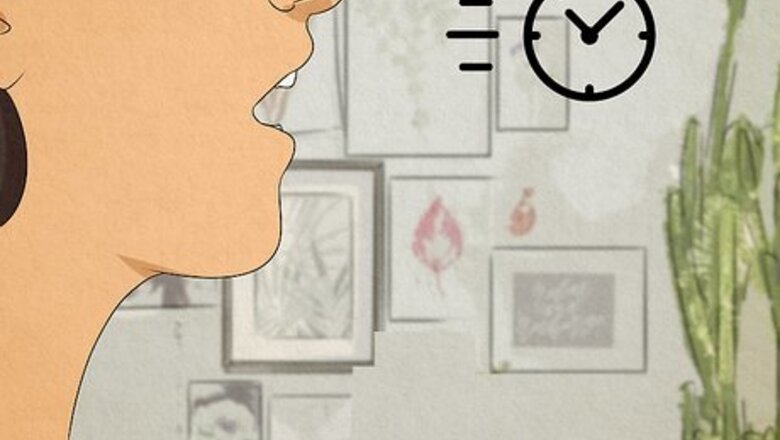
views
- Soften up the vowel sounds in words so that words like “caught” sound more like “cot” than “cat.”
- Emphasize the consonant sounds in words so that words like “any” sound more like “Annie.”
- Irish English tends to be very melodic, so practice lightly singing your way through sentences to make the accent more realistic.
Irish Cadence & Lingo
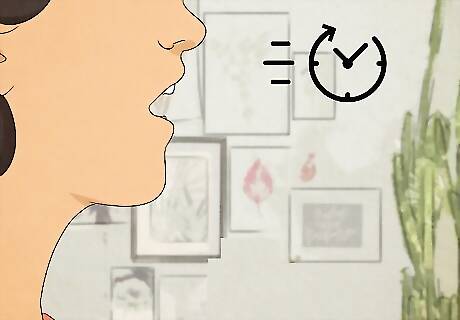
Speak quickly but be sure to pronounce each word. An Irishman will not be caught saying, "coulda, woulda, shoulda" like they’re all one word, but they will rattle them off like they’re singing a song. Give each sound (unless dropped via a trick mentioned above) equal attention. Your tongue and lips will be getting a workout, but it’ll sound authentic. This is why a lot of people have an easier time mastering an Irish accent compared to something like an Australian accent. You actually sound more authentic with Irish if you pronounce every sound, which makes things easier. If you do have pauses, use "em" to fill them. Stay away from "uh" or "um," which are American filler sounds—just use "em." If you can throw this in naturally and without thinking, your Irishness will increase ten-fold.
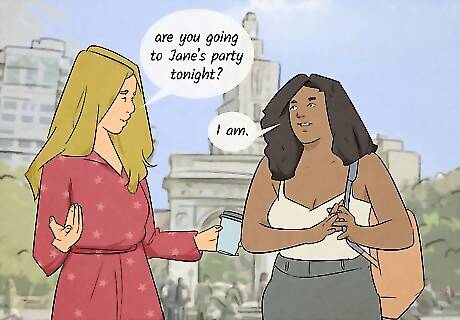
Repeat the main verb in yes/no questions. Often, yes/no questions are straightforward and to the point. In the US, people will answer "yes" or "no." Seems pretty logical, right? Nope. That's not how it works in the land of Saints and Scholars. When asked, repeat the noun and verb. For example, "Are you going to Jane's party tonight?"—"I am.""Does Ireland have unicorns?"—"It doesn't."

Use the after-perfect construction to sound more old-timey. The after perfect (AFP), which is one of the most characteristic features of Irish English, has given rise to a certain amount of debate and a great deal of confusion. Basically, you use a form of "to be" + "after" + an -ing verb. For example, "Why did you go to the shop?"—"I was after running-out of potatoes." You might say, "I'm after performing on the West End!" An American English speaker might say, "I have just had dinner." An Irish speaker could say, "I am after having my dinner." This feature isn’t common among younger Irish folks. You’re more likely to hear an older, more rural Irish speaker use the after-perfect construction.
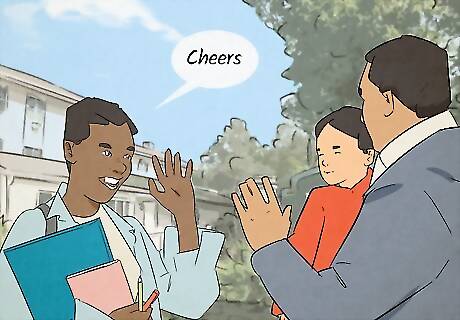
Utilize popular Irish idioms and colloquialisms. Irish people employ all kind of fun and wonderful phrases that you won’t find in other English dialects. No one else may know what you're talking about, but sacrifices must be made if you want to seem authentic. Soon, you'll be cod acting like a bucklepper! Cheers: Not only is this used while clinking glasses, it also means "hello," "thank you," and "goodbye." Work it in often; the Irish certainly do. Lad: This term describes any male, though usually it's reserved for friends. "Lads" can refer to a group of males and females, though. C'mere: Literally, this means "come here," but in Irish English it basically means "listen to me" or even just "hey." To begin any innocuous sentence, start it with "C'mere." Right: This sort of serves as an alternative to "c'mere." It's multi-purpose and mainly serves to clarify. As in, "Right, we're meeting at 7 o'clock by the watch tower then?" Avoid "Top of the mornin' to ya!" and "Blarney!" unless you want to be that guy.
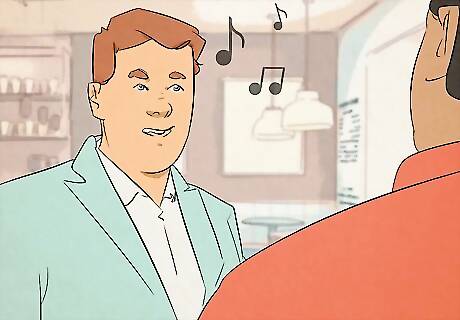
Lean into the lyrical and sing-songy nature of Irish English. The Irish accent is generally thought of as more musical than American or British English. It has a definite lilt to it that isn't seen in other variations of the language. Practice phrases like they’re a little more song-like than they’d be in your native dialect. A good place to start is slightly higher than your natural tone. Get a little lower in the middle of the phrase, and then move back up slightly.
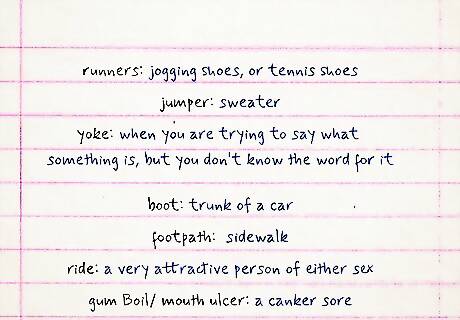
Use popular Irish terminology. You know how the British call an elevator a lift? It’s not slang—they just use a different noun! While there are dozens of Irish-specific words out there to learn, at least familiarize yourself with these common examples: Runners: Runners usually refers to Jogging shoes, or Tennis Shoes. Jumper: Jumper is really plain and simple; a sweater. Yoke: This one is kind of confusing. Yoke is like when you are trying to say what something is, but you don't know the word for it. It kind of means something like Thingamajig, or Thingamabob. Boot: This simply refers to the trunk of a car. "Put the food in the boot." Footpath: A sidewalk. Ride: A very attractive person of either sex. Gum Boil/ Mouth Ulcer: A canker sore.
Irish Pronunciation
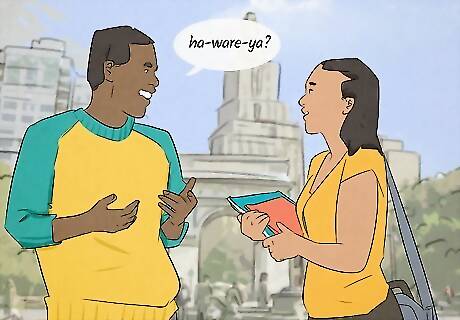
Soften the vowel sounds in each word. Most English speakers outside of the UK harden their vowels. For example, Americans pronounce the letter A, "ay." Someone with an Irish accent would pronounce it "ahy" or "eye." Be very conscious of this in every word, but especially those vowels that come in the middle. A question like, "How are you?" sounds like, "Ha-ware-ya?" The "au" (in "how") and "oo" (in "you") of the General American accent are not different. The sound in "night," "like," and "I," is pronounced similar to "oi," as in "oil." Think of "Ireland" as "Oireland." While very similar to "oi," it's not the exact same. Turn the 'o' into more of a "schwa." The sound the two vowels make (called a dipthong) is similar to a combo of, "Uh, I..." The lazy vowel sound (called a schwa), as in "strut," varies from dialect to dialect. It could sound more like "foot," or more like "bit."
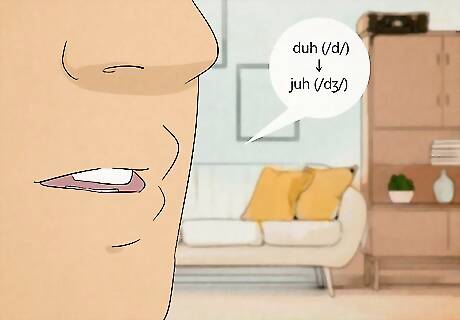
Harden your consonants to sound sharper. As a general rule, non-Irish English speakers have gotten lazy in their speech. "Ladder" and "latter" are pronounced the exact same in the US, but not if you’re Irish. Give each consonant its due (with the exception of the next rule!). As a beginning sound, “duh” (/d/) often sounds like “juh” (/d͡ʒ/) or the sound that a J makes in most variants of English. That is, "due" will sound like "Jew." "T" becomes "ch," so "tube" sounds like "choob." There is a distinction between words like "wine" and "whine." Words with "wh" begin with an initial "h" sound; try expelling a bit of breath before the word—the result should be something akin to "hwine." Some Irish accents turn "think" and "that" into "tink" and "dat," respectively. Try "trowing" it into your speech sporadically to sound more Irish.
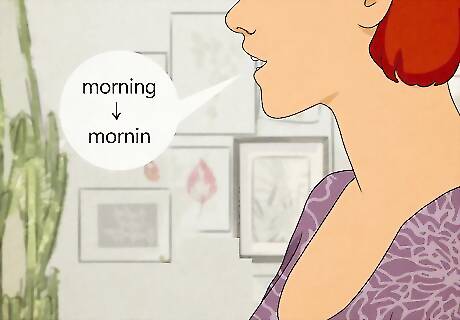
Drop the gs at the end of -ing words. English is full of words that end in -ing, but you wouldn't hear a native Irish speaker admitting it! Whether you're muttering verbs or gerunds, cut that g-sound out. "Morning" becomes "mornin." "Walking" becomes "walkin," and so on and so forth. This stays true in all contexts. In the popular Local Dublin accent, final sounds are eliminated entirely: "sound" becomes "soun," for example.
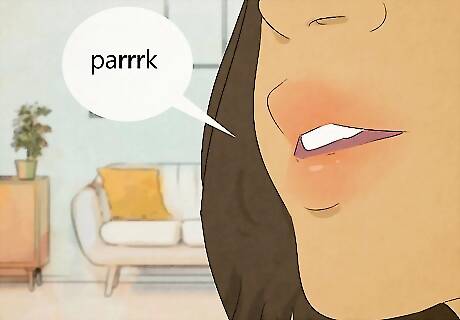
Emphasize hard "r" sounds in your speech. For most American English speakers, this is not a problem. But if your dialect is something called non-rhotic (which drops the “r” in the middle of words so that "park" sounds like "pack"), be conscious of pronouncing every "r" regardless of where it lands in a word. Rhoticity refers to whether “r” sounds in words are ever dropped or emphasized. The more often the “r” is dropped, the less rhotic an accent is. Speakers of both American and British English will need to put their 'r' more forward in their mouths than they are used to. Experiment placing your tongue further forward and higher in your mouth while saying words with an 'r' in the middle or end. If you’re American, you’ll have a harder time doing this if you’re from the South, which is where you’ll find the least rhotic accents in the US.
Practicing Your Accent
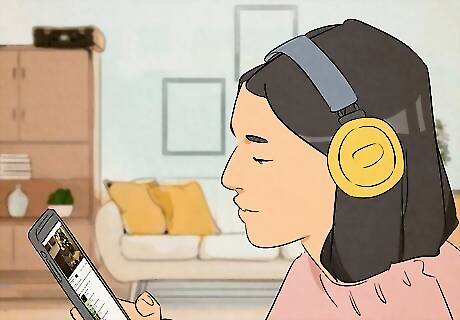
Listen to authentic Irish accents. Look up Irish videos on YouTube and watch Irish movies. Check out Irish interviews. Try to emulate the phrases or words you hear. All of this will give you a much better sense for the real sound and cadence of an Irish accent. You can also listen to popular Irish music in your spare time. It’s easy to hear clear Irish accents in Irish folk music, for example! Check out The Wolfe Tones or The Dubliners for some awesome Irish accents. The Banshees Of Inisherin is an Oscar-nominated film that features some phenomenal Irish accents. You could also check out Derry Girls if you’re looking for a hilarious TV series to binge-watch.
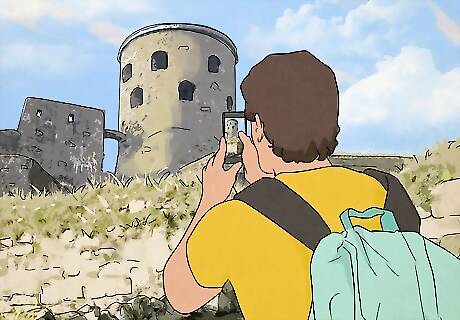
Visit Ireland to talk to some Irish speakers IRL. In the same respect you never truly master a foreign language if you don't live in the country, you will never master an accent if you don't live among the people. Visit Ireland and meet some Irish natives to hear the accent for yourself! If you go on vacation, do your best to feel out the local flavor. Go to small restaurants and listen to those around you. Make small talk with the vendors on the streets. Hire a native tour guide to show you around. Make your exposure as 24/7 as possible.
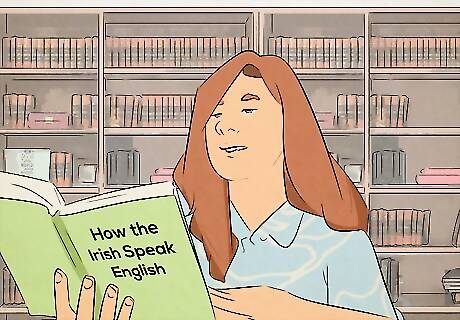
Use a book to help you master the language. Just as there are American and British English dictionaries, there are Irish dictionaries, too. What's more, resources abound when it comes to sources on colloquialisms and idiosyncrasies of the accent. Invest your time and money into this endeavor if you truly want your accent to shine. If a dictionary seems a bit much and would just rest on your shelf gathering dust, buy a phrase book. The idioms and figures of speech will help you get into the emerald zone. Check out Padraic O’Farrel’s How the Irish Speak English for an interesting look at fascinating Irish phrases and linguistic quirks.



















Comments
0 comment